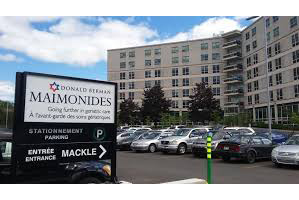By MYRON LOVE Winnipeg Jewish Theatre is breaking new ground with its first ever co-production with Rainbow Stage. The new partnership’s presentation of “Fiddler on the Roof” is scheduled to hit the stage at our city’s famed summer musical theatre venue in September 2026.
“We have collaborated with other theatre companies in joint productions before,” notes Dan Petrenko, the WJT’s artistic and managing director – citing previous partnerships with the Segal Centre for the Performing Arts in Montreal, the Harold Green Jewish Theatre in Toronto, Persephone Theatre in Saskatoon and Winnipeg’s own Dry Cold Productions. “Because of the times we’re living through, and particularly the growing antisemitism in our communities and across the country, I felt there is a need to tell a story that celebrates Jewish culture on the largest stage in the city – to reach as many people as possible.”
Last year, WJT approached Rainbow Stage with a proposal for the co-presentation of “Fiddler on the Roof.” Rainbow Stage management was really enthusiastic in their response, Petrenko reports.
“We are excited to be working with Winnipeg’s largest musical theatre company,” he notes. “Rainbow Stage has an audience of more than 10,000 people every season. Fiddler is a great, family-oriented story and, through our joint effort with Rainbow Stage, WJT will be able to reach out to new and younger audiences.”
“We are also working to welcome more diverse audiences from other communities, as well as newcomers – families who have moved here from Israel, Argentina and countries of the former Soviet Union.”
Helping Petrenko to achieve those goals are two relatively new and younger additions to WJT’s management team. Both Company Manager Etel Shevelev, and Head of Marketing Julia Kroft are in their 20s – as is Petrenko himself.
Kroft, who is also Gray Academy’s Associate Director of Advancement and Alumni Relations, needs little or no introduction to many readers. In addition to her work for Gray Academy and WJT, the daughter of David and Ellen Kroft has been building a second career as a singer and actor. Over the past few years, she has performed by herself or as part of a musical ensemble at Jewish community events, as well as in various professional theatre productions in the city.
Etel Shevelev is also engaged in a dual career. In addition to working full time at WJT, she is also a Fine Arts student (majoring in graphic design) at the University of Manitoba. Outside of school, she is an interdisciplinary visual artist (exhibiting her work and running workshops), so you can say the art world is no stranger to her.
(She will be partcipating in Limmud next month as a member of the Rimon Art Collective.)
Shevelev grew up in Kfar Saba (northeast of Tel Aviv). She reports that in Israel she was involved in theatre from a young age. “In 2019, I graduated from a youth theatre school, which I attended for 11 years.” In a sense, her work for WJT brings her full circle.
She arrived in Winnipeg just six years ago with her parents. “I was 19 at the time,” she says.
After just a year in Winnipeg, her family decided to relocate to Ottawa, while she chose to stay here. “I was already enrolled in university, had a long-term partner, and a job,” she explains. “I felt that I was putting down roots in Winnipeg.”
Etel expects to graduate by the end of the academic year, allowing her to focus on the arts professionally full-time.
In her role as company manager, Shevelev notes, she is responsible for communications with donors, contractors, and unions, as well as applying for various grants and funding opportunities.
In addition, her linguistic skills were put to use last spring for WJT’s production of “The Band’s Visit,” a story about an Egyptian band that was invited to perform at a cultural centre opening ceremony in the lively centre of Israel, but ended up in the wrong place – a tiny, communal town in southern Israel. Shevelev was called on to help some of the performers with the pronunciation of Hebrew words and with developing a Hebrew accent.
“I love working for WJT,” she enthuses. “Every day is different.”
Shevelev and Petrenko are also enthusiastic about WJT’s next production – coming up in April: “Ride: The Musical” debuted in London’s West End three years ago, and then went on to play at San Diego’s Old Globe theatre to rave reviews. The WJT production will be the Canadian premiere!
The play, Petrenko says, is based on the true story of Annie Londonderry, a young woman – originally from Latvia, who, in 1894, beat all odds and became the first woman to circle the world on a bicycle.
Petrenko is also happy to announce that the director and choreographer for the production will be Lisa Stevens – an Emmy Award nominee and Olivier Award winner. (The Olivier is presented annually by the Society of London Theatre to recognize excellence in professional London theatre).
“Lisa is in great demand across Canada, and the world really,” the WJT artistic director says. “I am so thrilled that we will be welcoming one of the greatest Jewish directors and choreographers of our time to Winnipeg this Spring.”
For more information about upcoming WJT shows, readers can visit wjt.ca, email the WJT office at info@wjt.ca or phone the box office at 204-477-7515.
Post Views: 365






